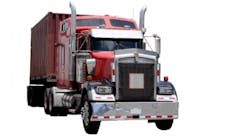OSHA and the Federal Motor Carrier Safety Administration have signed a memorandum of understanding allowing the agencies to cooperate on whistleblower cases that fall under the anti-retaliation provision of the Surface Transportation Assistance Act.
“The memorandum allows for the exchange of safety, coercion and retaliation allegations, when received by one agency, that fall under the authority of the other,” OSHA explained in a news release.
The Surface Transportation Assistance Act protects drivers and other individuals working for commercial motor carriers from retaliation for reporting or engaging in activities related to certain safety, health or security conditions.
“Commercial vehicle drivers who report injuries, hazards and illegal work practices should not fear retaliation for speaking out about unsafe work conditions,” OSHA Administrator Dr. David Michaels. “Through this agreement, we are sending a clear message that silencing workers who try to do the right thing is unacceptable for workers and also unsafe for the public.”
Under the agreement, FMCSA will refer employees who complain of retaliation to OSHA, and OSHA will provide FMCSA with copies of complaints filed and findings issued under the Surface Transportation Assistance Act. The agencies will report to each other annually on information shared during the previous year.
The memorandum also stipulates that FMCSA will process OSHA requests for information from various FMCSA databases.
“This strengthened partnership with OSHA extends our inter-agency collaboration specifically to include the sharing of reports of alleged coercion – companies forcing or intimidating truck or bus drivers to violate federal safety regulations,” said FMCSA Administrator Anne Ferro. “Pressuring drivers to stay behind the wheel beyond their hours-of-service limits, or to disregard other federal safety rules, seriously jeopardizes the safety of every traveler on our highways and roads. Commercial truck and bus companies that knowingly endanger the motoring public, or retaliate against whistleblowing employees, will be prosecuted to the fullest extent of the law.”
OSHA and FMCSA each play a specialized role in protecting the safety of commercial drivers and of the motoring public. OSHA investigates employee complaints of retaliation by commercial truck and bus companies. FMCSA is responsible for regulating both industries and – along with its state law enforcement partners – ensuring company and driver compliance with federal safety regulations, including driver on-duty and driving-time limits to prevent fatigue, commercial driver's licenses rules, medical qualifications, drug and alcohol testing, hazardous materials safety standards and others.
In the last nine years, OSHA has processed more than 2,800 cases under the Surface Transportation Assistance Act, according to the agency. Recently, OSHA ordered an Iowa waste removal company to reinstate a driver and pay the employee more than $123,000 in compensation after the company terminated the driver for raising safety concerns over company routes that violated Department of Transportation regulations, potentially causing serious injury to the worker, co-workers or the public.
OSHA enforces the whistleblower provisions of the Occupational Safety and Health Act and 21 other statutes protecting employees who report violations of various safety, environmental and financial regulations.
